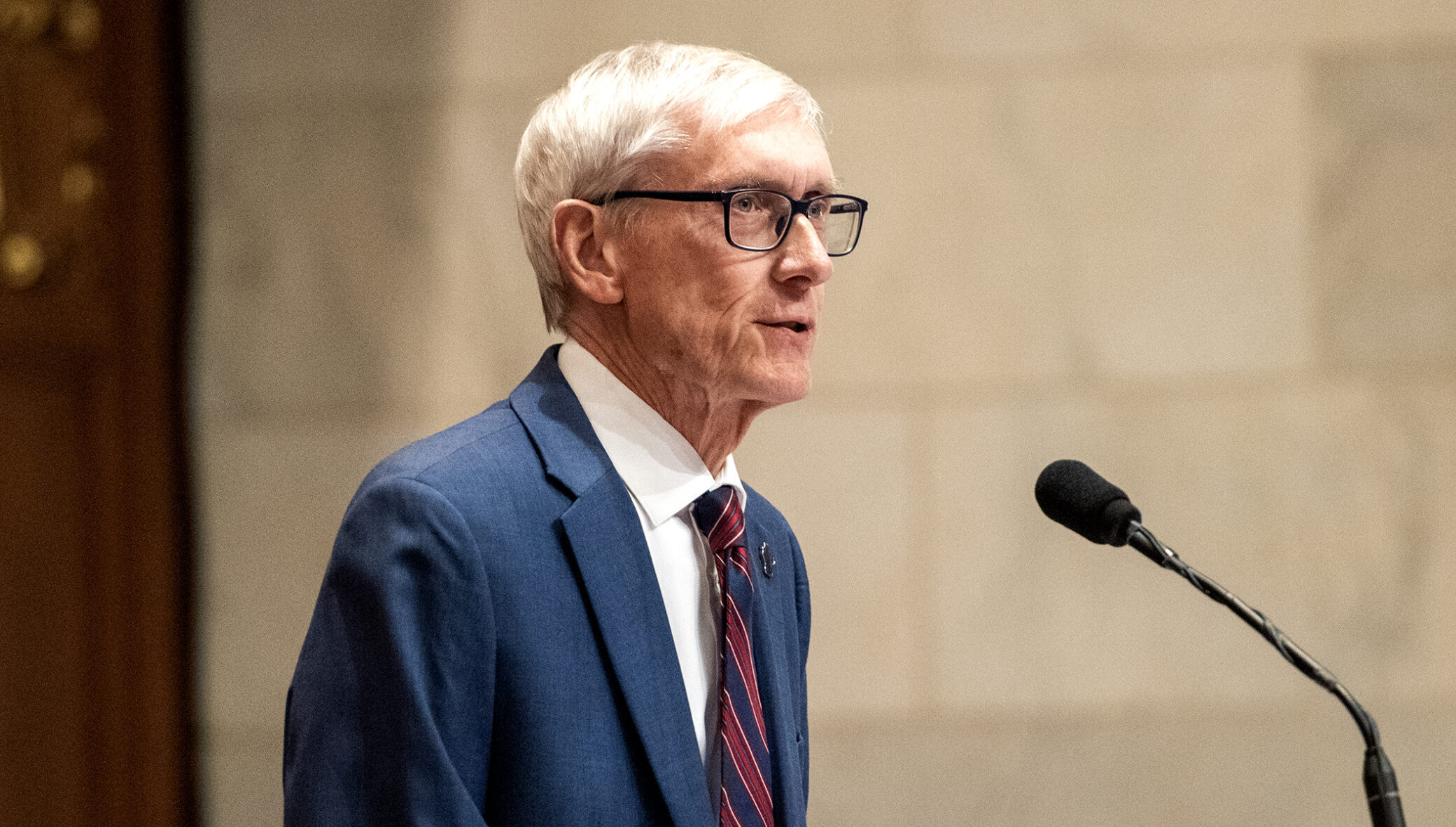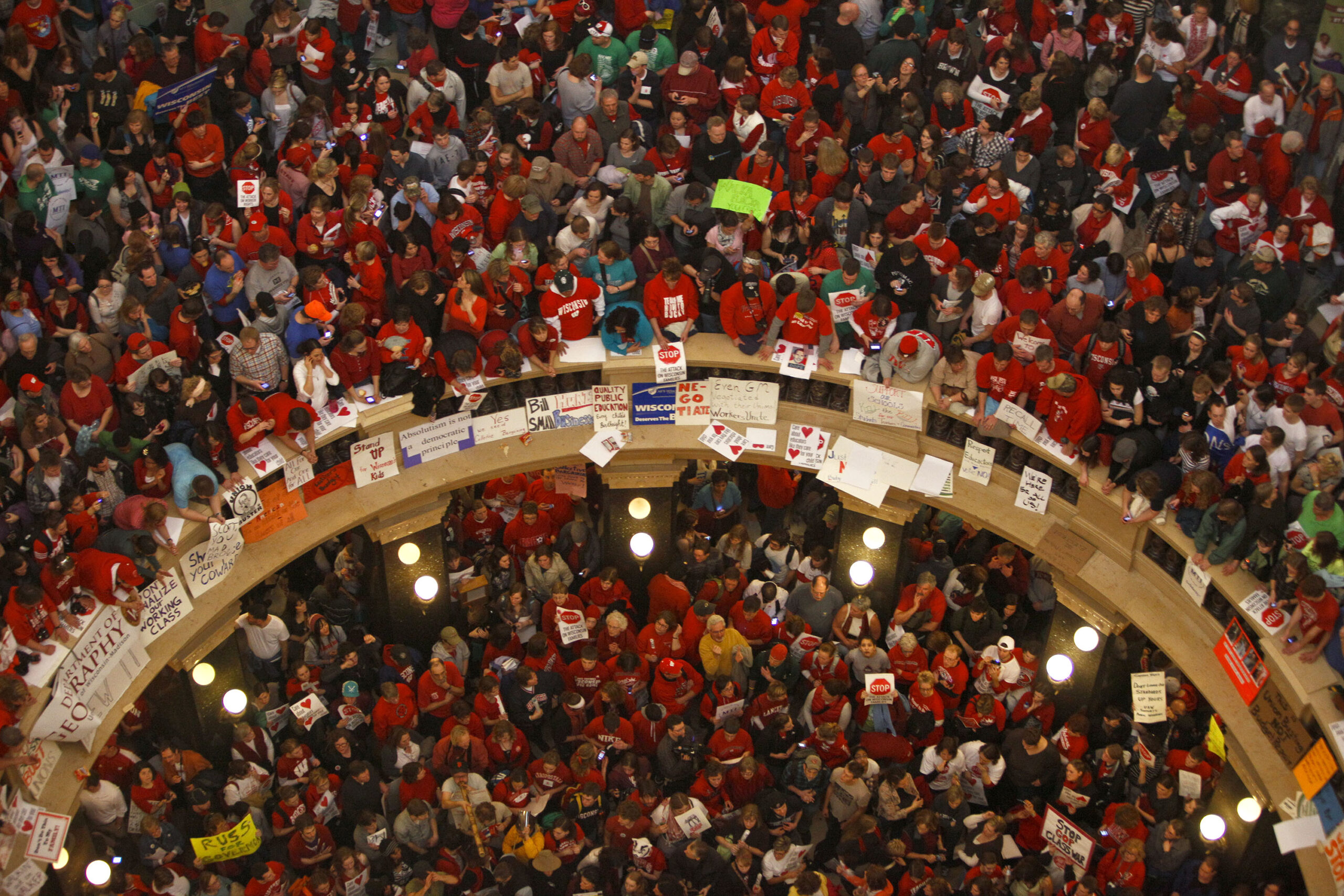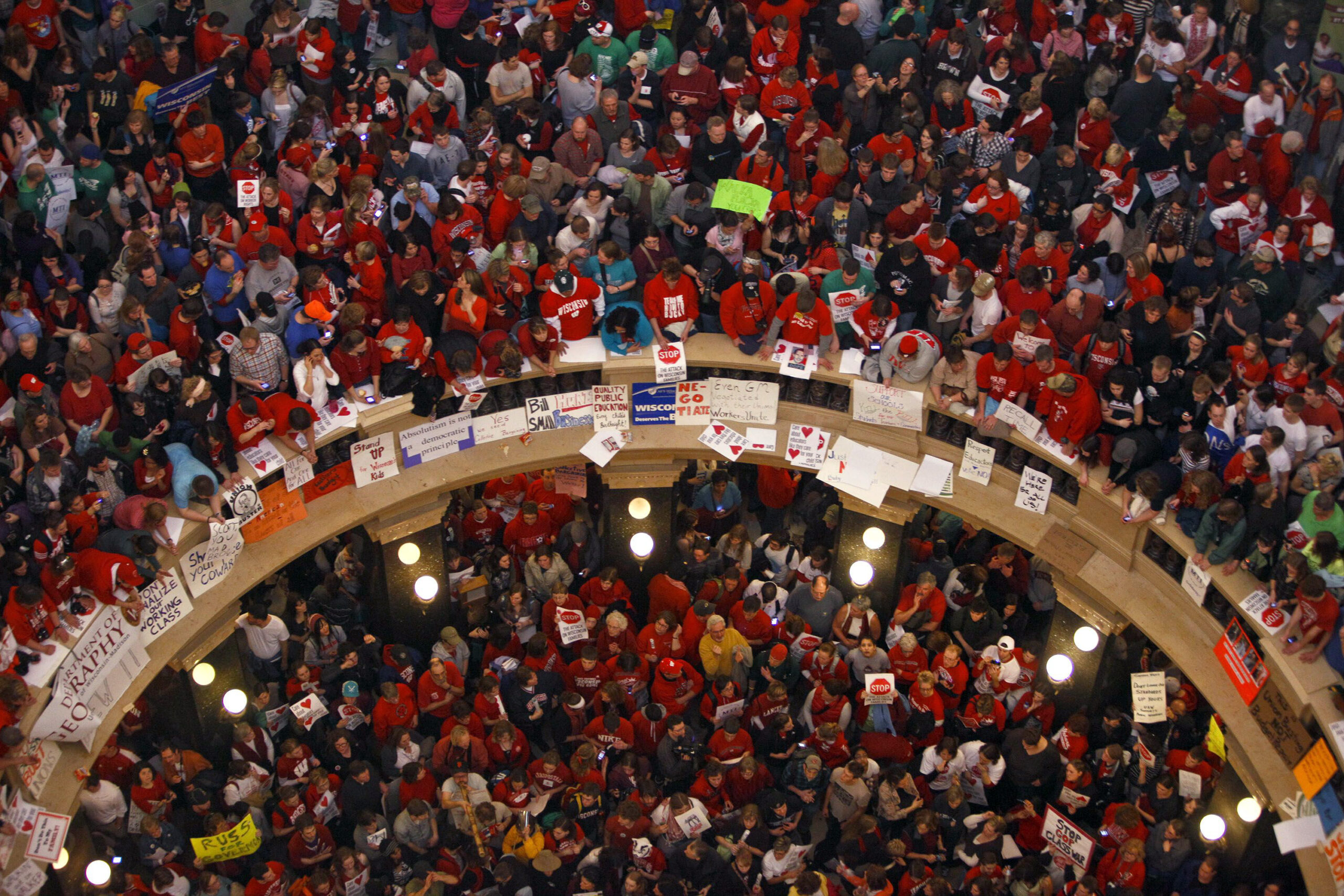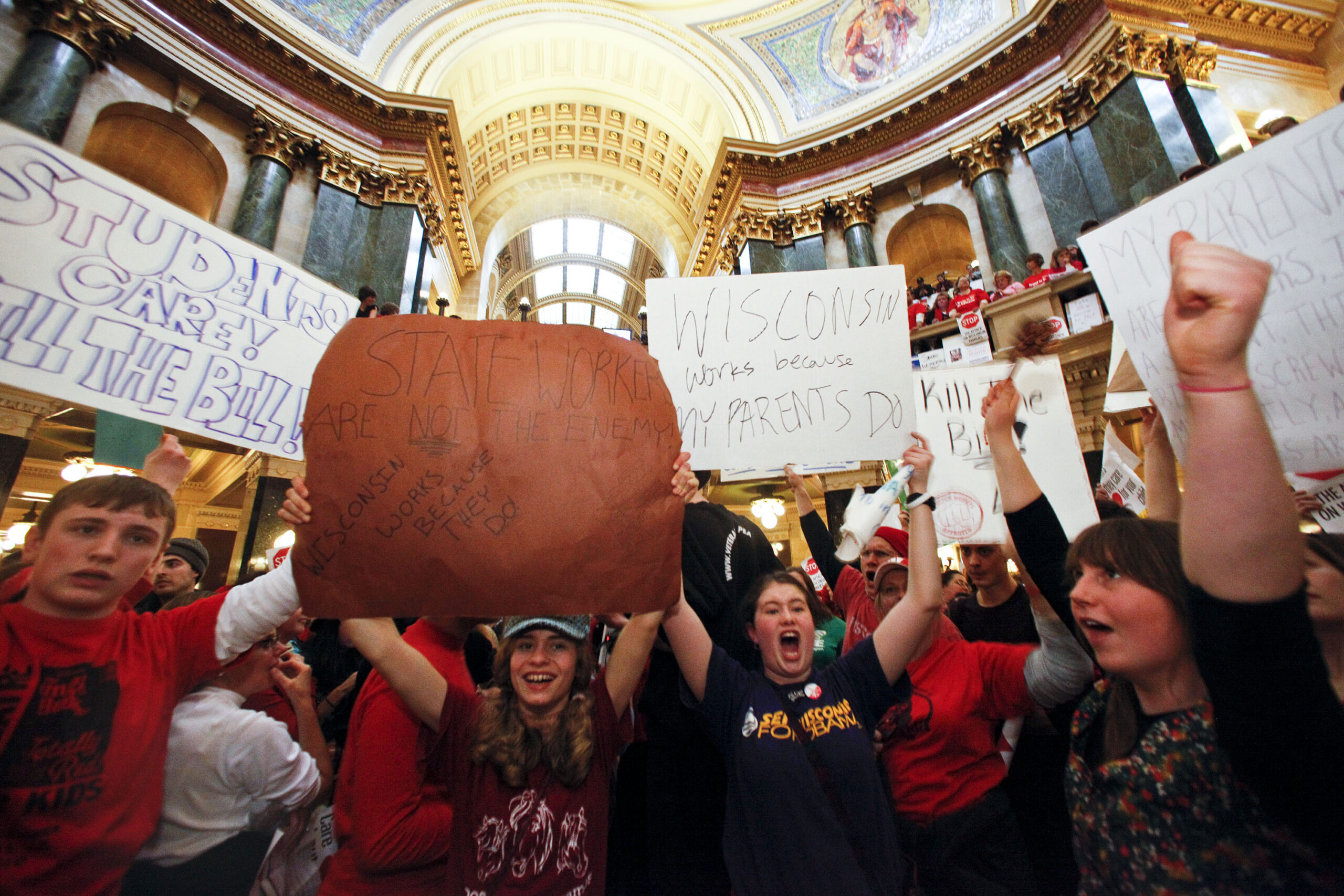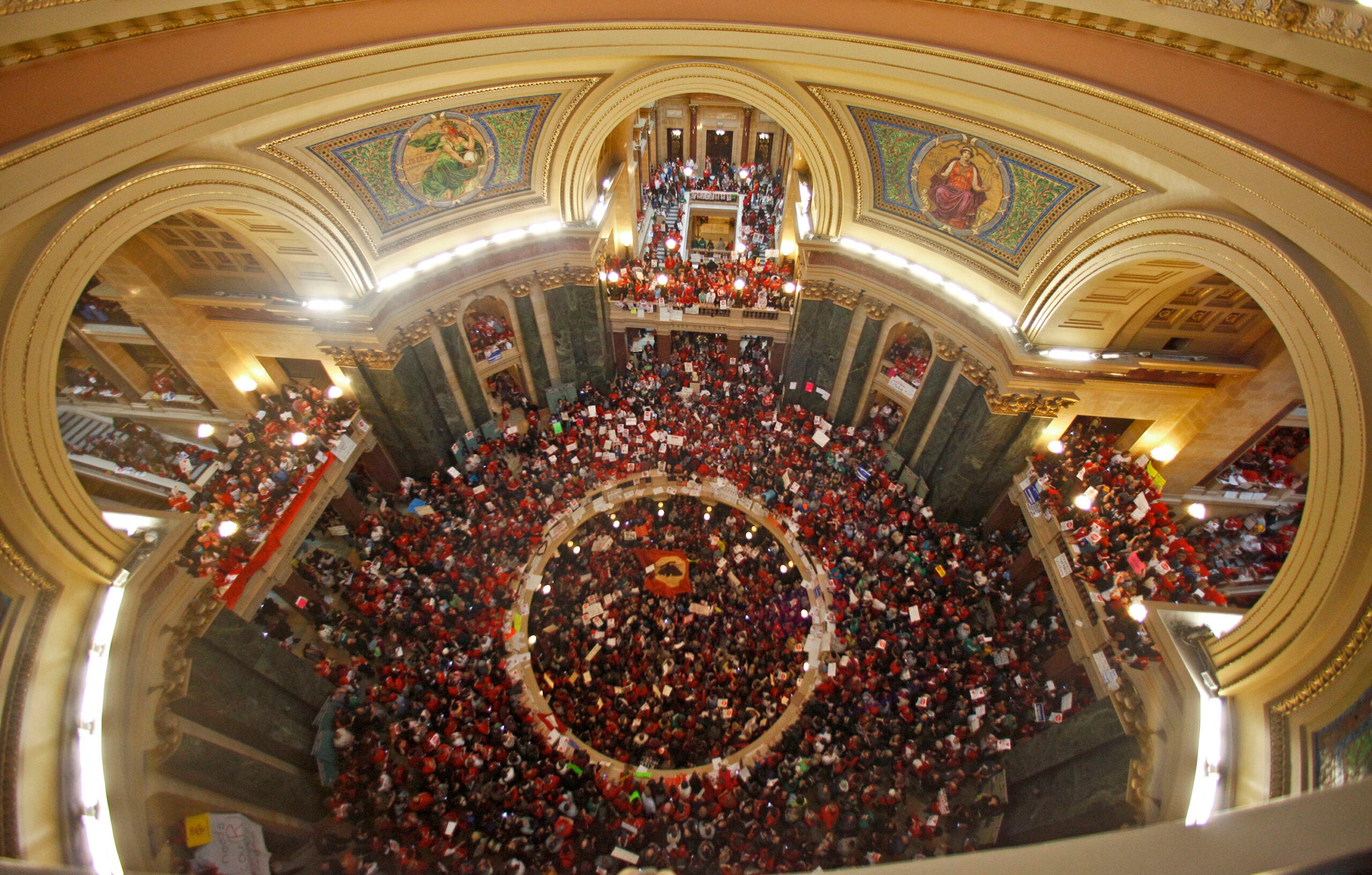Governor Scott Walker says the only reason he’d push any changes to state labor laws next session is if a higher court were to strike down portions of Wisconsin’s “Act 10.”
Gov. Walker’s law that curbed collective bargaining rights for public employees caused massive protests last session and drove an unprecedented round of recall elections. It’s currently being fought over in multiple state and federal courtrooms. A Dane County Circuit Court declared many pieces of the law null and void.
Walker has said he doesn’t want to make more major changes to union laws next session. However, he says, “The only possible exception to that would be if somehow if the courts, if the Supreme Court ultimately came back and said the law could only be upheld if–and it prescribed something–then I think for obvious logical reasons we’d want to correct that.”
Stay informed on the latest news
Sign up for WPR’s email newsletter.
The governor has in the past supported a right to work law like the one that was just signed in Michigan and some Republicans think now is the time for Wisconsin to follow suit. Other GOP lawmakers think Walker’s collective bargaining law should be expanded to curb union rights for police and firefighters. But the governor says now’s not the time, “And even, I think some of those who support right-to-work understand why I’m pushing this. And that is after a year of protests, a year of recalls and this year another year of at least part of the year of recalls, for employers in the state, particularly small businesses, even though they overwhelmingly like what we’re doing, they don’t need any distractions. They don’t need anything that creates a huge amount of uncertainty. And debates, discussions over issues like this would go down that path. And as a leader, I just don’t want us doing that.”
Walker wouldn’t go so far as to say there won’t be “tweaks” to Act 10 next year.The next legislative session begins in January.
Wisconsin Public Radio, © Copyright 2025, Board of Regents of the University of Wisconsin System and Wisconsin Educational Communications Board.


